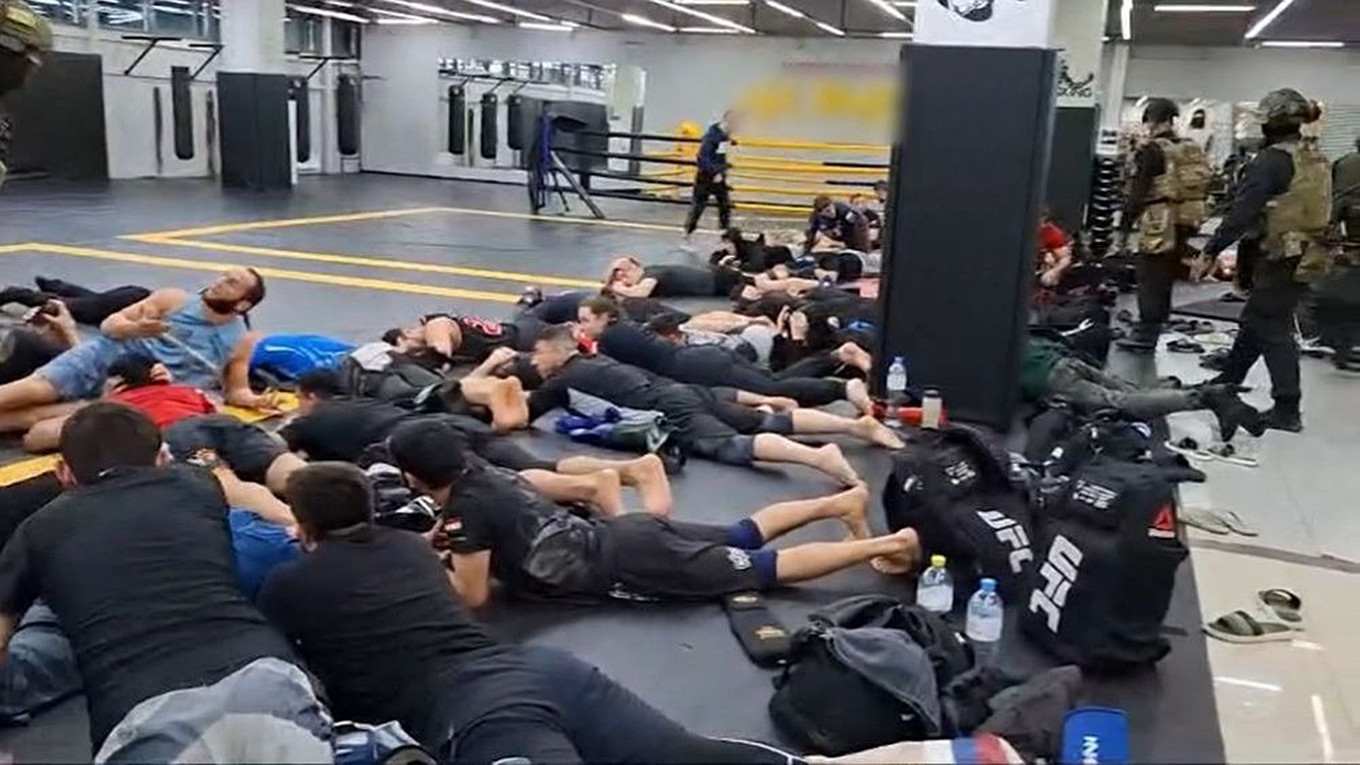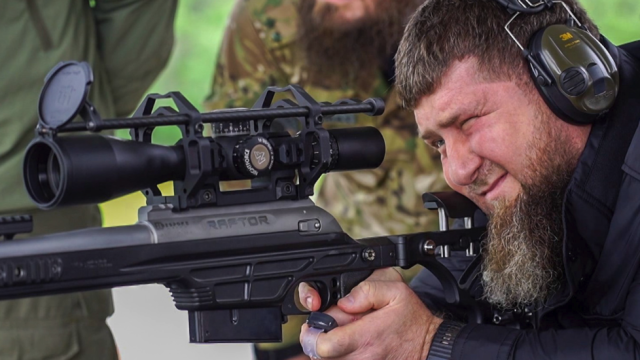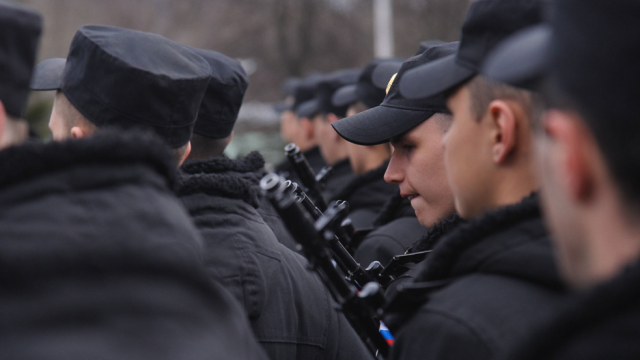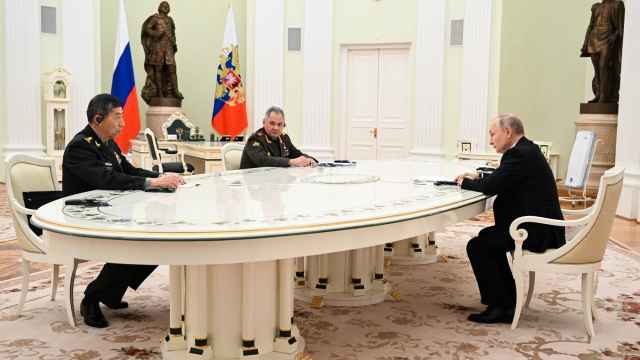Russian police are targeting migrants and draft-age men in a wave of raids on gyms and martial arts clubs across major cities, with activists describing them as part of a broader crackdown that intensified ahead of the country’s spring military draft.
In late March, officers stormed a Spirit Fitness gym in southwest Moscow, forcing club-goers to lie face down on the floor while separating “Russian-looking” and “non-Russian-looking” individuals, according to eyewitness accounts.
“So there I am, running on the treadmill, minding my own business, watching Dota, chasing my best shape, when someone suddenly taps me on the shoulder,” one witness told local media. “I get off the treadmill and see that everyone else is already lying face down on the floor.”
The man, who had his passport and military paperwork “in full order,” was released. “But the guys who had been dodging the enlistment office and didn’t have their passports — they ran into trouble,” he said.
Similar raids have since been reported at other Spirit Fitness locations, as well as gyms in the cities of St. Petersburg, Irkutsk, Yekaterinburg and Krasnodar, according to Radio Free Europe/Radio Liberty’s regional desk Sever Realii. In one case, officers interrupted a children’s martial arts class in Krasnodar and forced both the children and their parents to lie on the floor.
Lawyers in multiple regions told Sever Realii that gym raids now happen at least twice a month in major cities. Russian citizens are typically sent to enlistment offices, while foreign nationals are taken to temporary detention centers. Many are ultimately deported.
In one raid, a military officer reportedly accompanied police to hand out conscription notices directly. Activists say authorities are also targeting naturalized citizens who have obtained Russian passports but avoided military service, pressuring them to sign military contracts under threat of deportation or loss of citizenship.
Valentina Chupik, a human rights activist, told Sever Realii that police often issue false disorderly conduct citations to justify deportations. Another activist, identified only as Alexander, said sports clubs popular with ethnic minorities have been routinely raided for the past two months.
“It’s long been known that Russian authorities view mass sports activity among ethnic minorities with suspicion, considering these clubs ‘breeding grounds for extremism,’” Alexander told the U.S.-funded news outlet. “After the Crocus attack, law enforcement has been making regular rounds at ‘non-Slavic’ gyms like it’s their day job.”
The March 2024 attack at Crocus City Hall, allegedly carried out by Tajik nationals, triggered mass detentions of migrants across the country. Last year, Russia deported over 80,000 foreign nationals — nearly twice the number from the previous year, according to Russia’s Federal Bailiff Service.
The crackdown has been further enabled by new regulations that took effect in early February, which simplify deportation procedures and expand the use of Russia’s “controlled persons registry.” Individuals placed on the registry face sweeping restrictions, including bans on travel, opening bank accounts, driving, marrying and sending more than 30,000 rubles ($365) per month — effectively blocking remittances.
Between April 16 and 23, Sever Realii reported more than 200 cases of illegal detentions of migrants and draft-age men in Moscow and St. Petersburg alone, suggesting the pace of detentions is accelerating as authorities try to fill military ranks.
However, police appear to have started casting a wider net recently. According to activist Alexander, in the weeks leading up to Russia’s spring conscription, which began on April 1, law enforcement authorities increasingly targeted gyms where non-Russians are not always welcome.
“It seems the trend has changed: now they’re more interested in grabbing people for the draft office than sending them to migrant detention,” he told Sever Realii.
A Message from The Moscow Times:
Dear readers,
We are facing unprecedented challenges. Russia's Prosecutor General's Office has designated The Moscow Times as an "undesirable" organization, criminalizing our work and putting our staff at risk of prosecution. This follows our earlier unjust labeling as a "foreign agent."
These actions are direct attempts to silence independent journalism in Russia. The authorities claim our work "discredits the decisions of the Russian leadership." We see things differently: we strive to provide accurate, unbiased reporting on Russia.
We, the journalists of The Moscow Times, refuse to be silenced. But to continue our work, we need your help.
Your support, no matter how small, makes a world of difference. If you can, please support us monthly starting from just $2. It's quick to set up, and every contribution makes a significant impact.
By supporting The Moscow Times, you're defending open, independent journalism in the face of repression. Thank you for standing with us.
Remind me later.






